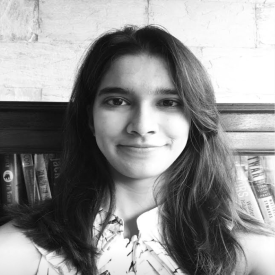India’s Women’s Reservation Act: A big win for governance and beyond
Amidst debates about the recently passed women's reservation act and whether it will reduce gender disparities on the ground, Wattal and Gopalan summarise evidence from a number of randomised evaluati...
-
 Akshara Gopalan
Akshara Gopalan  Urvashi Wattal
Urvashi Wattal  15 December, 2023
15 December, 2023
- Perspectives
The distributional consequences of political reservations
This article identifies and attempts to fill in the gaps in understanding the effects of reservations for Scheduled Castes (SCs) in Panchayats. Using data from a state-wide census, multiple administra...
-
 Chinmaya Kumar
Chinmaya Kumar  M.R. Sharan
M.R. Sharan  28 November, 2023
28 November, 2023
- Articles
The complexity of female empowerment interventions
In the final post of I4I’s month-long campaign to mark International Women’s Day 2023, Siwan Anderson unpacks the complex dimensions and interactions between measures of female empowerment. She hi...
-
 Siwan Anderson
Siwan Anderson  30 March, 2023
30 March, 2023
- Perspectives
Women’s legal rights and gender gaps in property ownership
Amendments to succession laws have sought to address gender-based discrimination in property inheritance in India. Analysing Demographic and Health Survey data, collected in about 40 countries since 2...
-
 Isis Gaddis
Isis Gaddis  Rahul Lahoti
Rahul Lahoti  Hema Swaminathan
Hema Swaminathan  23 April, 2021
23 April, 2021
- Articles
Dowries and women’s well-being post marriage
Dowries are transfers of wealth from the bride's family to the groom or his family at the time of marriage. Analysing nationally representative survey data from rural India, this article shows that do...
-
 Rossella Calvi
Rossella Calvi  Ajinkya Keskar
Ajinkya Keskar  12 April, 2021
12 April, 2021
- Articles
Leaders and citizens: Women’s political participation in India
Women’s political participation has emerged as a key element of the discourse around the upcoming state elections in India. In this post, Nalini Gulati and Ella Spencer explore the evidence on vario...
-
 Nalini Gulati
Nalini Gulati  Ella Spencer
Ella Spencer  31 March, 2021
31 March, 2021
- Perspectives
Social identity, health networks, and health knowledge
Health knowledge, driven by education, is a critical factor for the achievement of good health outcomes. Analysing data from the Indian Human Development Survey 2004-05, this article examines how know...
-
 Niels-Hugo Blunch
Niels-Hugo Blunch  Nabanita Datta Gupta
Nabanita Datta Gupta  17 March, 2021
17 March, 2021
- Articles
Matter of mobility: Barriers to women’s work and education, and the dangers at home
As countries across the world implemented lockdowns to mitigate the spread of Covid-19, both women and men have been largely confined to their homes but with differential impacts. In this post, Nikita...
-
 Nikita Sharma
Nikita Sharma  16 March, 2021
16 March, 2021
- Perspectives
Gendered breadwinner norms and work decisions
The male breadwinner norm – the idea that a man must earn more than his wife – can potentially impact labour-market outcomes of married women. Using nationally representative data from India for t...
-
 Sakshi Gupta
Sakshi Gupta  08 March, 2021
08 March, 2021
- Articles
‘Missing’ women in economics academia in India
Economics continues to be among the male-dominated disciplines in the US and Europe. Collating and analysing data from India on university faculty, research presentations at a major annual conference,...
-
 Upasak Das
Upasak Das  Ambrish Dongre
Ambrish Dongre  Karan Singhal
Karan Singhal  05 March, 2021
05 March, 2021
- Articles
International Women’s Day 2021
8 March is observed across the world as International Women’s Day. This year the theme is “choose to challenge”, focussing on the choice to challenge gender bias and inequality, celebrate women'...
-
 I4I Team
I4I Team  03 March, 2021
03 March, 2021
- Perspectives
Employment entry and exit by women in India
While India’s low female labour force participation has been studied extensively in the recent literature, an aspect that has received insufficient attention is the dynamic nature of employment – ...
-
 Soham Sahoo
Soham Sahoo  Sudipa Sarkar
Sudipa Sarkar  19 January, 2021
19 January, 2021
- Articles
Covid-19 spread: Does social and economic diversity matter?
Arresting the spread of Covid-19 requires collective action by communities, which is likely to be more challenging in settings with high diversity. Using district-level data from India, this article e...
-
 Upasak Das
Upasak Das  Udayan Rathore
Udayan Rathore  Prasenjit Sarkhel
Prasenjit Sarkhel  15 January, 2021
15 January, 2021
- Articles
Webinar: Growing concern around violence against women
On 25 November 2020, the International Day for the Elimination of Violence against Women, the India Programme of the International Growth Centre – in collaboration with the Asian Development Researc...
-
 Michele Mary Bernadine
Michele Mary Bernadine  Nalini Gulati
Nalini Gulati  10 December, 2020
10 December, 2020
- Videos
Caste gaps in behaviour and personality traits: A study of university students
While numerous studies have examined gaps in health and educational outcomes across castes, there is little evidence on caste gaps in behavioural preferences and personality traits. Based on incentivi...
-
 Utteeyo Dasgupta
Utteeyo Dasgupta  Subha Mani
Subha Mani  Smriti Sharma
Smriti Sharma  Saurabh Singhal
Saurabh Singhal  04 December, 2020
04 December, 2020
- Articles
Twitter feed
Tweets by Ideas4IndiaMost Popular Social Identity Posts
A division of labourers: Caste identity and efficiency in India
Castes in India are closely associated with certain occupations and determine the jobs done by millions. This study uses a new dataset to show that a large proportion of workers still work in their ca...
 Guilhem Cassan
Guilhem Cassan  Daniel Keniston
Daniel Keniston  Tatjana Kleineberg
Tatjana Kleineberg  18 November, 2022
18 November, 2022
- Articles
Sex ratios and religion in India and South Asia
In South Asia, low child sex ratios are increasingly an isolated Indian phenomenon. Within India, child sex ratios are ‘normal’ among Christians and Muslims but much lower among Hindus, Sikhs, and...
 Swati Narayan
Swati Narayan  03 April, 2019
03 April, 2019
- Articles
Hindu-Muslim fertility differentials in India: An update
Building on past research, Saswata Ghosh and Pallabi Das estimate the state- and district-level fertility differentials between Hindus and Muslims using data from the latest round of the NFHS. They sh...
 Pallabi Das
Pallabi Das  Saswata Ghosh
Saswata Ghosh  18 April, 2023
18 April, 2023
- Articles





 15 March, 2024
15 March, 2024






